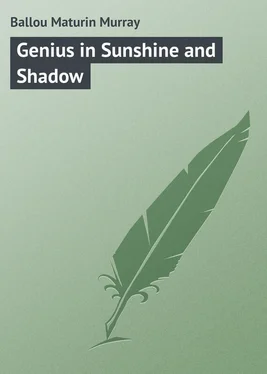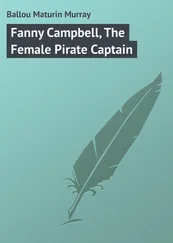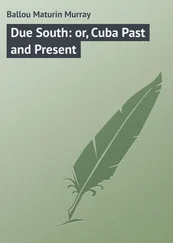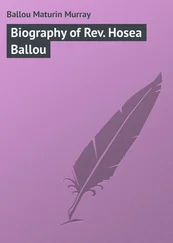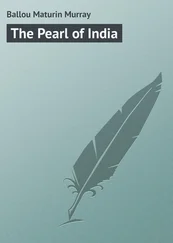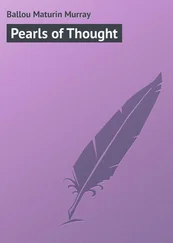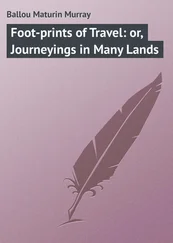Maturin Ballou - Genius in Sunshine and Shadow
Здесь есть возможность читать онлайн «Maturin Ballou - Genius in Sunshine and Shadow» — ознакомительный отрывок электронной книги совершенно бесплатно, а после прочтения отрывка купить полную версию. В некоторых случаях можно слушать аудио, скачать через торрент в формате fb2 и присутствует краткое содержание. Жанр: foreign_prose, foreign_humor, Анекдоты, на английском языке. Описание произведения, (предисловие) а так же отзывы посетителей доступны на портале библиотеки ЛибКат.
- Название:Genius in Sunshine and Shadow
- Автор:
- Жанр:
- Год:неизвестен
- ISBN:нет данных
- Рейтинг книги:4 / 5. Голосов: 1
-
Избранное:Добавить в избранное
- Отзывы:
-
Ваша оценка:
- 80
- 1
- 2
- 3
- 4
- 5
Genius in Sunshine and Shadow: краткое содержание, описание и аннотация
Предлагаем к чтению аннотацию, описание, краткое содержание или предисловие (зависит от того, что написал сам автор книги «Genius in Sunshine and Shadow»). Если вы не нашли необходимую информацию о книге — напишите в комментариях, мы постараемся отыскать её.
Genius in Sunshine and Shadow — читать онлайн ознакомительный отрывок
Ниже представлен текст книги, разбитый по страницам. Система сохранения места последней прочитанной страницы, позволяет с удобством читать онлайн бесплатно книгу «Genius in Sunshine and Shadow», без необходимости каждый раз заново искать на чём Вы остановились. Поставьте закладку, и сможете в любой момент перейти на страницу, на которой закончили чтение.
Интервал:
Закладка:
Thomas Ball, the sculptor, who has done so much to ornament the parks and squares of Boston, used as a lad to sweep out the halls of the Boston Museum. 24 24 His old employer, Moses Kimball, paid Ball twenty thousand dollars for the bronze group now standing in Park Square. It represents President Lincoln Freeing the Slaves. The purchaser presented it to the city of Boston.
The author has often been within the walls of his pleasant studio in the environs of Florence, adjoining his charming domestic establishment. It is near to the spot where Powers produced his "Greek Slave," and overlooks the lovely city of Florence, divided by the Arno. Andrew Jackson, who became President of the United States, was the son of a poor Irish emigrant, and so was John C. Calhoun, the great Southern statesman and Vice-President. Abraham Lincoln and the late President Garfield were both sons of toil, the former being commonly designated as "the rail-splitter," the latter as "the canal-boy." Andrew Johnson was a journeyman tailor. Henry Wilson was a cobbler at the bench until he was nearly twenty-one. So also was Andersen, 25 25 Hans Christian Andersen was one of the most gifted of modern authors. In his story entitled "Only a Fiddler," he has given many striking pictures from the experience of his own life. His best books are his fairy-tales, of which he has published several volumes.
the Danish novelist. Jasmin, who has been called the Burns of France, was the son of a street beggar. Allan Cunningham, poet, novelist, and miscellaneous writer, began life as a stone-mason; he became the father of four sons, all of whom won distinction in literature. Among the father's novels was that of "Paul Jones," which was remarkably successful. Dr. Isaac Miller, Dean of Carlisle, began life as a weaver, and Dr. Prideaux, Bishop of Worcester, earned his living in youth as a kitchen-boy at Oxford. Watt, the great Scotch inventor, whose steam-engine has revolutionized modern industry, and Whitney, inventor of the cotton-gin, were street gamins in childhood. Both these inventors were thought by their associates to be "beside themselves" as they grew towards maturity. "No man is quite sane," says Emerson; "each has a vein of folly in his composition, a slight determination of blood to the head, to make sure of holding him hard to some one point which nature has taken to heart."
The world's great men, according to the acceptation of the term, have not always been great scholars. General Nathaniel Greene, the successful Revolutionary commander, second only in military skill to Washington, was brought up at a blacksmith's forge. Horace Greeley, orator and journalist, was the son of a poor New Hampshire farmer and earned his living for years by setting type. William Sturgeon the able and famous electrician, Samuel Drew the English essayist, and Bloomfield the poet, all rose from the cobbler's bench; and so did Thomas Edwards, the profound naturalist. Robert Dodsley, the poet, dramatist, and friend of Pope began life as a London footman in livery. His tragedy of "Cleone" was so successful and well constructed, that Dr. Johnson said, "If Otway had written it, no other of his pieces would have been remembered," which was certainly extravagant praise. 26 26 Any one who could place the tragedy of "Cleone" before that of "Venice Preserved," by Otway, in point of merit, must have been singularly prejudiced.
Douglas Jerrold was born in a garret at Sheerness. Hobson, one of England's admirals, was a tailor's apprentice in early life. Huntington, the remarkable preacher and revivalist, was originally a coal-heaver, and Bewick, the father of wood-engraving, was a laborer in a coal mine for many years.
John Gay, the English poet, was not "born with a silver spoon in his mouth," but in youth he came up to London, where he served as a clerk to a silk-mercer. "How long he continued behind the counter," says Dr. Johnson, "or with what degree of softness and dexterity he received and accommodated the ladies, as he probably took no delight in telling it, is not known." He wrote comedies, fables, farces, and ballads, and wrote well, and was vastly popular. Gay was a great gourmand, very lazy, and fond of society. 27 27 Thackeray says: "He was lazy, kindly, uncommonly idle; rather slovenly, forever eating and saying good things. A little French abbé of a man, sleek, soft-handed, and soft-hearted." A Mr. Rich was the manager of the theatre in which Gay's "Beggar's Opera" was brought out. Its unprecedented success suggested the epigram that "it made Rich gay, and Gay rich."
The silk-mercer's clerk attained the much-coveted honor of resting at last in Westminster Abbey. Boffin, the great navigator, served at first before the mast as a common sailor. Robert Dick, the geologist and botanist, followed his trade as a baker through his whole life.
Would it not seem, in the light of these many instances, that practical labor forms the best training even for genius?
Linnæus (Karl von Linné), the great Swedish botanist, the most influential naturalist of the eighteenth century, was a shoemaker's apprentice. His works upon his favorite study are authority with students of science all over the world. He became physician to the king and made his home at Stockholm, but roamed over all Scandinavia in pursuing his special science of botany and also that of zoölogy. He will always be remembered as having been the first to perfect a systematic and scientific classification of plants and animals. He lies buried in the Upsala Cathedral.
Thorwaldsen, the great Danish sculptor, was the son of an humble Icelandic fisherman, but by reason of native genius he rose to bear the name of the greatest of modern sculptors. He left in the Copenhagen museum alone six hundred grand examples of the art he adorned. Many of our readers will remember having seen near Lucerne, Switzerland, one of his most remarkable pieces of sculpture, representing a wounded and dying lion of colossal size, designed to commemorate the heroic fidelity of the Swiss guards who fell Aug. 10, 1792. Thorwaldsen was passionately fond of children, so that the moment he entered a house he gathered all the juveniles about him; and in most of his marble groups he introduces children. He never married, but made his beautiful mistress, the Roman Fortunata, celebrated by repeating her face in many of his ideal groups. Thorwaldsen gave an impulse to art in his native country which has no like example in history; indeed, art is to-day the religion of Copenhagen, and Thorwaldsen is its prophet.
George Stephenson, the English engineer and inventor, was in his youth a stoker in a colliery, learning to read and write at a laborers' evening school. John Jacob Astor began life as a pedler in the streets of New York, where his descendants own a hundred million dollars worth of real estate. 28 28 Among his liberal bequests were four hundred thousand dollars for the establishment of a public library in New York, to which his son, William B. Astor, subsequently added as much more. The Astor Library is therefore one of the best endowed institutions of the kind in America.
The elder Vanderbilt, famous not alone for his millions but also for his vast enterprise in the development of commerce and railroads, served as a cabin-boy on a North River sloop during several years of his youth. George Peabody, the great American philanthropist and millionnaire, was born in poverty. Fisher Ames, the eminent statesman and orator, eked out a precarious living for years as a country pedagogue. Greatness lies not alone in the possession of genius, but in the right and effective use of it.
We have given examples sufficient to illustrate this branch of our subject, though they might be almost indefinitely extended. It was Daniel Webster 29 29 Webster, when told that there was no room for new lawyers in a profession already overcrowded, answered, with the proud consciousness of genius and character, "There is always room at the top."
who said that "a man not ashamed of himself need not be ashamed of his early condition in life." Titles are vendible, but genius is the gift of Heaven.
Интервал:
Закладка:
Похожие книги на «Genius in Sunshine and Shadow»
Представляем Вашему вниманию похожие книги на «Genius in Sunshine and Shadow» списком для выбора. Мы отобрали схожую по названию и смыслу литературу в надежде предоставить читателям больше вариантов отыскать новые, интересные, ещё непрочитанные произведения.
Обсуждение, отзывы о книге «Genius in Sunshine and Shadow» и просто собственные мнения читателей. Оставьте ваши комментарии, напишите, что Вы думаете о произведении, его смысле или главных героях. Укажите что конкретно понравилось, а что нет, и почему Вы так считаете.
